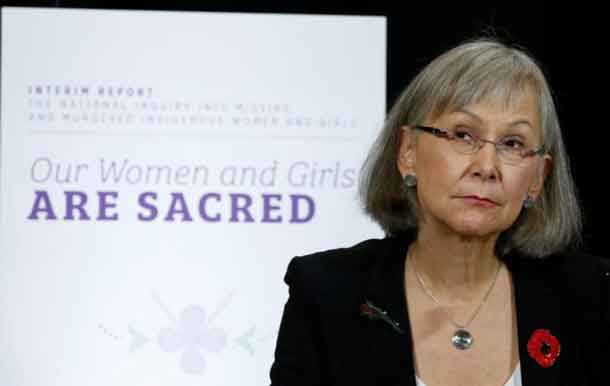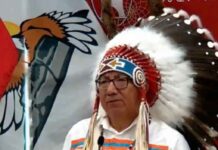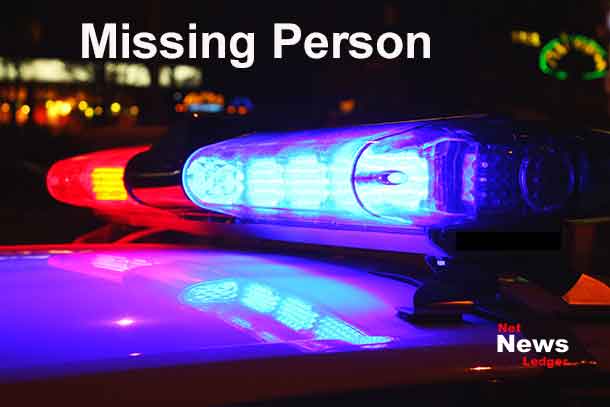

Over 1,000 Indigenous women and girls have died in recent decades
OTTAWA – (Reuters) – Canada’s national inquiry into missing and murdered Indigenous women, plagued by delays and resignations, on Wednesday called for a national police task force that could reopen cases of violence against aboriginals.
Launched last August, the inquiry made of four commissioners is investigating the root causes of over 1,000 deaths of aboriginal women and girls in recent decades and has been holding public hearings across the country.
Amid complaints from victims’ families that police often do not take seriously cases involving aboriginals, the inquiry’s interim report recommended the federal government work with the provinces and territories to create a police task force to re-examine cases and review investigations.
While the inquiry can pass on any new evidence it gathers to authorities, it is not undertaking a full investigation of individual cases.
Information given to the inquiry at a number of hearings suggest there may have been inadequate or improper policing involved, Commissioner Qajaq Robinson told reporters.
The task force would be made up of well-trained police officers and investigators with knowledge of indigenous language and issues, Robinson said.
The devil will be in the details in terms of what powers the taskforce will have in relation to provincial authorities, said Timothy Stanley, Interim Director of the Institute of Canadian and Aboriginal Studies at the University of Ottawa.
Prime Minister Justin Trudeau has promised a better relationship with Canada’s estimated 1.7 million aboriginals and spoke about the country’s dark history of colonization at a speech to the U.N. General Assembly in September.
But the inquiry, one of the government’s centerpieces, has faced complaints it is moving too slowly and not communicating with victims’ families. One of its five commissioners resigned in July.
The inquiry was likely to take even longer, with the report saying its mandate could not be met in the two-year timeframe without further harming families.
It did not specify how much more time might be needed. The work of the inquiry was intended to be wrapped up by the end of 2018.
So far, 900 people have registered to speak to the panel, which will have heard from 320 people by the end of this week, the inquiry’s Chief Commissioner Marion Buller said.
“We need enough time to do the job properly, to hear from families and survivors who want to speak to us,” Buller said, adding that needs to be balanced with families’ desire for closure.
(Reporting by Leah Schnurr, editing by G Crosse)





